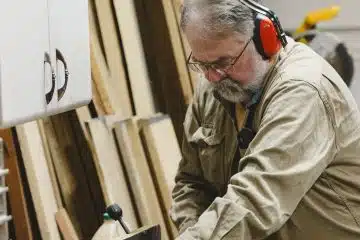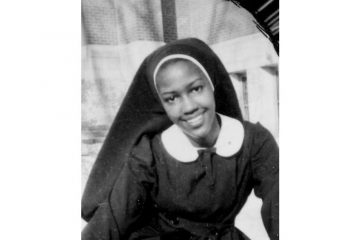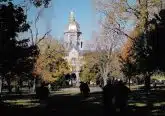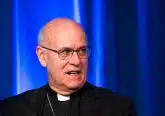Be joyful, the Eucharist is not just a metaphor, Bishop Burbidge says
Washington, D.C. Newsroom, Oct 3, 2023 / 17:15 pm
Bishop Michael Burbidge of the Diocese of Arlington, Virginia, recently urged Catholics at Philadelphia’s Eucharistic Congress to “open ourselves to wonder” before the Eucharist and to seek the “strength, consolation and countless graces” the Blessed Sacrament offers the faithful Catholics who receive it.
The bishop was among the keynote speakers at Philadelphia’s congress over the weekend; he also offered a homily at the opening Mass of the event on Sept. 30.
The Philadelphia congress is part of the three-year National Eucharistic Revival commissioned by the U.S. Conference of Catholic Bishops that will culminate in a larger national congress in Indianapolis next year.
At Saturday’s opening Mass, at the National Shrine of Our Lady of Czestochowa, Burbidge said a “common error” of the present age is that “some people mistakenly see the Eucharist as a metaphor.”
Burbidge pointed to the account in the Gospel of John in which Christ tells his followers: “My flesh is real food and my blood is real drink” (Jn 6:55).
“[Christ] did not attempt to offer a symbolic meaning, as he sometimes did with stories and parables,” Burbidge said. “Instead, he repeated — again — ‘Whoever eats my flesh and drinks my blood remains in me and I in him.’”
“Even when, as John later tells us, many of his friends and followers abandoned him for speaking this way, Jesus did not recant or revise his teaching,” Burbidge said.
The bishop said the “celebratory joy” granted by the Eucharist means “we must ensure we treat [it] with great care.”
“May we renew our commitment today, in our parishes and communities, that the Eucharist will always be devoutly celebrated with the utmost care, joy, and reverence for which this archdiocese is known,” he told attendees.
‘Open ourselves to its wonder’
In his keynote speech as part of the day’s later events, titled “The Sacramental Sacrifice of Christ: His Gift to the Church and Our Response to His Gift,” the bishop pointed to the beloved C.S. Lewis novel “The Lion, the Witch, and the Wardrobe,” in which four children discover an ordinary-looking wardrobe that leads them into the magical realm of Narnia.
Lewis’ tale, Burbidge said, “teaches and encourages us to search for more, to see more, to hope for more. We are beckoned by a reality so much deeper than the one that meets the eye: an awakening of wonder.”
The experience of wonder, the bishop said, is not always merely “something that happens to us”; rather, it “often requires a change within us, a change in how we see the world and relate to it,” an important quality to remember when approaching the Eucharist.
“For in the Eucharist,” he said, “we encounter not only a great wonder but the source of all wonder, the wonder of wonders — the sacrament that stands at the very center of our Church, our faith, and our lives.”
The wonder of the Eucharist, Burbidge said, “is mysterious and hidden” and “does not come to us accompanied by a great fanfare.” Its consecration at Mass is not accompanied by lightning or thunder as if in a cartoon, he noted; nor is the Eucharist accompanied by visible heavenly splendor or choirs of angels.
“Instead, we see something ordinary — a simple meal of bread, wine, and water,” he said. “We hear simple words uttered in blessing. We taste what tastes like ordinary unleavened bread and wine.”
The reality of the Blessed Sacrament, he noted, is ultimately “beyond our reckoning.”
“Jesus Christ, true God and true man — body, blood, soul, and divinity — stands before us hidden under the appearance of bread and wine,” he said. Christ’s real presence in the Blessed Sacrament, the bishop said, is “the mystery, the paradox, the wonder of the Eucharist.”
The bishop said the Eucharist is not meant to give us a “static rest” nor “the peace of staying put.” It “is not meant to keep us in place, but to inspire us to go out” and perform acts of charity in our families and our communities.
The Blessed Sacrament further offers the faithful “a foretaste of what is to come” in its preview of “an unimaginable unity with God, and through that, an unimaginable unity with one another.”
“When we make the Eucharist a way of life, we bring that foretaste of heaven into all that we do,” Burbidge said. “We carry a reminder of the profound unity that awaits us in Jesus, a unity that we truly touch here and now in the Eucharist.”
The bishop offered several practical tips for the faithful to “make more space for the Eucharist” in their lives, including weekly, if not daily, attendance at Mass, learning about the Eucharist itself, attending Eucharistic adoration, and making oneself “a tabernacle of Christ in the world,” one who “brings the presence of the Eucharist to others” through acts of service and charity.
The Eucharist, Burbidge declared, “is not just a part of our lives as Catholics but the very center of it,” with the prelate noting that Catholics must “be willing to open ourselves to its wonder” to reap its benefits.
The Eucharist offers through its graces “a love so powerful that it cannot be contained — it overflows from our hearts into the world and illuminates everything in its path,” he said. “It is the magnetic attraction that brings others into the faith.”













